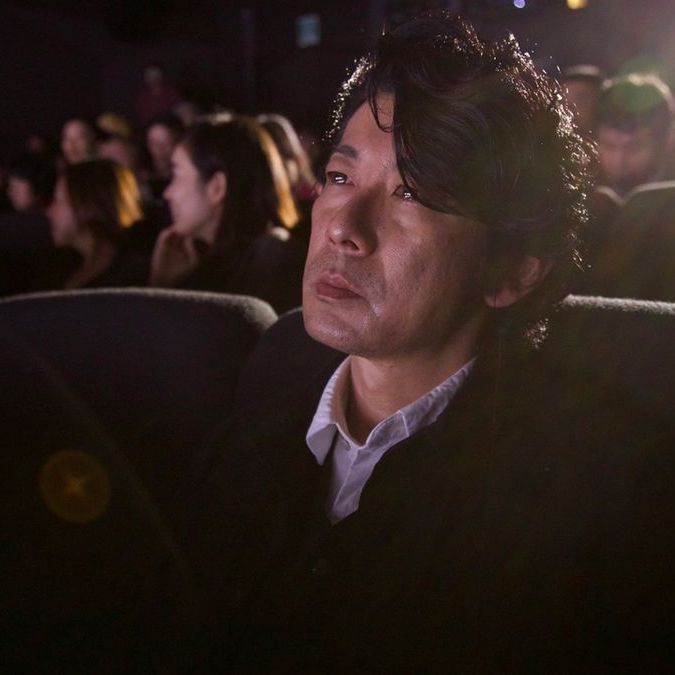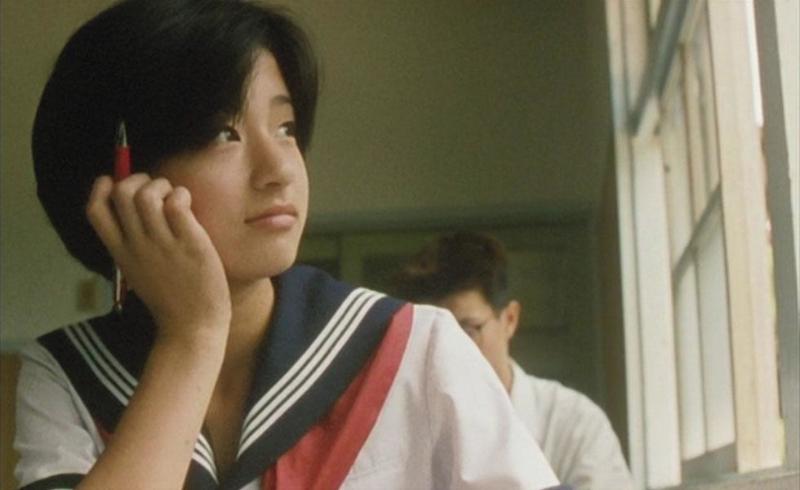Naomi Kawase, a prominent Japanese filmmaker, has gained international recognition for her deeply personal and poetic approach to cinema. She is best known for her exploration of the intricate ties between nature, memory, and the human condition, often weaving these elements into a contemplative and visually stunning narrative. Her work frequently blurs the boundaries between documentary and fiction, earning her a unique place in the realm of contemporary cinema.
Kawase’s career began to gain significant attention with her early works, such as Suzaku and The Mourning Forest, which showcase her distinctive style and thematic preoccupations. She often draws upon her own life experiences, infusing her films with a sense of intimacy and emotional depth. This autobiographical influence is particularly evident in Sweet Bean, where the nuanced portrayal of everyday life and the focus on human resilience and connection reflects her sensibilities. Her films often feature a strong connection to nature, using it as a backdrop to explore the inner lives of her characters, as seen in An, where the changing seasons metaphorically mirror the characters’ emotional journeys.
Visually, Kawase’s films are characterised by their serene and lyrical quality. She frequently employs handheld cameras and natural lighting, creating an organic and immersive experience that invites viewers to connect deeply with the narrative and characters. This technique is particularly effective in Still the Water, where the rhythmic flow of the sea becomes a central character in its own right, symbolising the ebb and flow of life. Another unique aspect of her filmmaking is her use of non-professional actors alongside seasoned performers, lending authenticity and rawness to her stories.

Naomi Kawase (1969 –)
Calculated Films:
- Shara (2003)
- True Mothers (2020)
Similar Filmmakers
- Abbas Kiarostami
- Anocha Suwichakornpong
- Apichatpong Weerasethakul
- Dominga Sotomayor Castillo
- Edward Yang
- Hirokazu Koreeda
- Hong Sang-soo
- Hou Hsiao-hsien
- Jose Luis Torres Leiva
- Mikio Naruse
- Miwa Nishikawa
- Nobuhiro Suwa
- Ryusuke Hamaguchi
- Shunji Iwai
- So Yong Kim
- Terrence Malick
- Yasujiro Ozu
- Yuya Ishii



Naomi Kawase’s Top 5 Films Ranked
1. Suzaku (1997)
Genre: Family Drama

2. Shara (2003)
Genre: Drama

3. Sweet Bean (2015)
Genre: Drama, Food, Slice of Life

4. The Mourning Forest (2007)
Genre: Drama, Psychological Drama

5. True Mothers (2020)
Genre: Drama

Naomi Kawase: Themes and Style
Themes:
- Connection with Nature: Kawase frequently explores the deep bond between humans and the natural world. In The Mourning Forest, she delves into the healing power of nature and its ability to help characters cope with grief and loss.
- Family and Relationships: Her films often focus on familial bonds and relationships, examining complexities within families. Sweet Bean and Still the Water showcase the dynamics of unconventional families and the emotional ties that bind them.
- Grief and Loss: Kawase’s work frequently addresses themes of grief and loss. Films like An (Sweet Bean) explore how characters deal with these emotions and find solace and understanding through their experiences.
- Spirituality and Transcendence: There is a strong element of spirituality in her films, where characters often embark on journeys of self-discovery and spiritual awakening, as seen in Still the Water.
- Cultural Heritage: Kawase often highlights aspects of Japanese culture and traditions, showcasing the country’s rich heritage and its impact on contemporary life, as in Sweet Bean, which centres around the traditional dorayaki pastry.
Styles:
- Documentary-like Realism: Kawase employs documentary-style realism in her narrative films, often blurring the line between fiction and reality. This is evident in the naturalistic performances and settings in The Mourning Forest.
- Lyrical Visuals: Her films are known for their poetic, lyrical visuals, using the natural beauty of landscapes to reflect characters’ inner states, as seen in the lush scenery of Still the Water.
- Intimate Cinematography: Kawase often uses close-ups and handheld camera work to create an intimate, immersive experience, drawing viewers closer to the characters’ emotional states, a technique used effectively in An.
- Pacing and Silence: She uses deliberate pacing and moments of silence to create a contemplative atmosphere, allowing viewers to deeply engage with the characters’ emotional journeys, as seen in Sweet Bean.
- Use of Natural Light: Kawase frequently utilises natural lighting to enhance the authenticity and mood of her scenes, contributing to the organic feel of her films.
Directorial Signature:
- Personal and Autobiographical Elements: Many of Kawase’s films incorporate elements from her own life and experiences, giving her work a deeply personal touch. This autobiographical element adds depth and authenticity to her storytelling.
- Collaboration with Non-Professional Actors: Kawase often works with non-professional actors, blending them seamlessly with professional actors to enhance the realism and spontaneity in her films, as seen in The Mourning Forest.
- Focus on Character Inner Life: She places a strong emphasis on the inner lives of her characters, exploring their thoughts, emotions, and spiritual journeys with depth and sensitivity.
- Integration of Philosophy and Poetry: Kawase’s work is imbued with philosophical and poetic undertones, reflecting her contemplative approach to filmmaking and storytelling.
- Exploration of Impermanence and Change: A recurring theme in her films is the impermanence of life and the constant flux of change, both in nature and human relationships. This theme is poetically woven through the narratives and visuals of her work.
Naomi Kawase – Great Director




